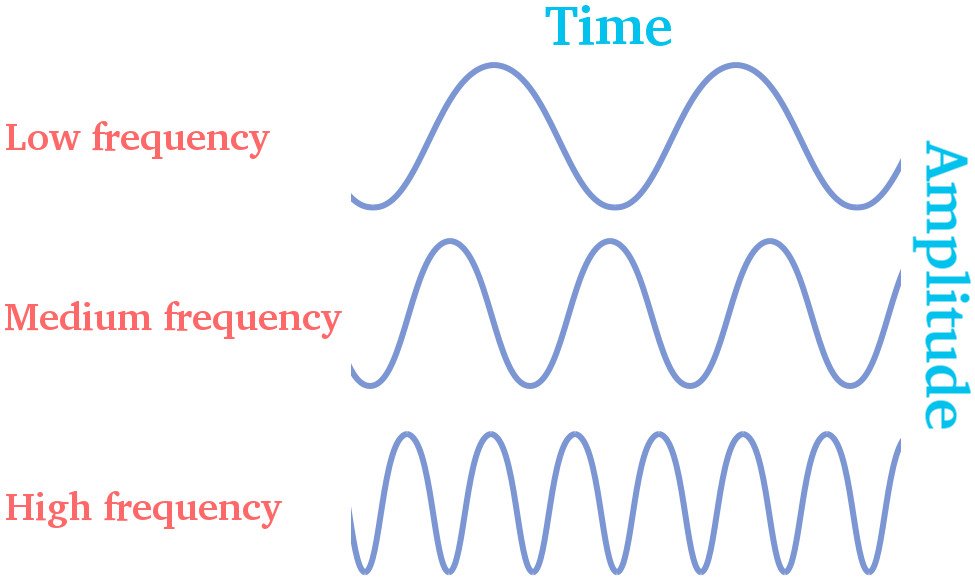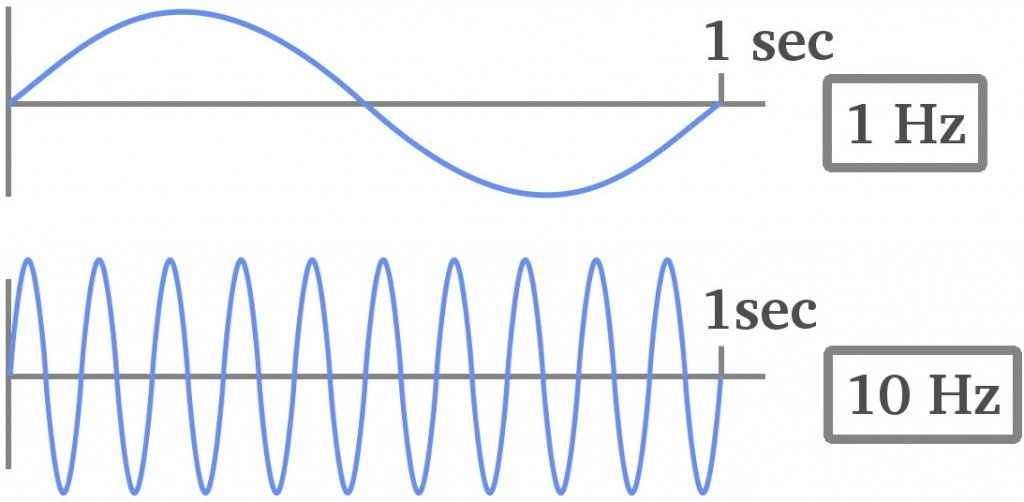Table of Contents (click to expand)
When you play a sound faster, or “speed it up”, you increase the frequency of the audio wave pattern, which consequently increases the pitch of the sound. This is why sped-up audio sounds squeaky!
Have you ever sped up an audio or video playback? If yes, then you know that when you speed up an audio file, it sounds squeaky, right? In other words, it sounds as if its pitch has been elevated.
Here’s an example of the popular song ‘Let it go’ (from the movie Frozen) after being sped up. First, listen to the original and ‘normal’ audio:
Now, listen to the sped-up version of the same audio:
Notice the difference? When you speed up the audio, it sounds squeaky. Why does that happen?
Before we can understand that, let’s take a quick crash course in sound waves in general.
What Are Sound Waves?
You have surely heard countless times that sound is actually a wave… but what’s a wave?
Simply put, a wave is a disturbance that transfers energy from one place to another without requiring any net flow of mass. Waves are broadly classified into two types: pulses and periodic waves. Note that waves can also be classified into longitudinal and transverse waves.

While a pulse is a single disturbance, a periodic wave is a continually oscillating motion. As you can imagine, sound waves are periodic waves. Also, they fall under the category of longitudinal waves, because the particles of the medium (through which sound travels) oscillate in the direction of the motion of the sound wave.
Sound, therefore, is actually a wave (or a combination of waves) made of vibrations in the air. Think of it this way: when a source, like a microphone, produces a sound, what it actually does is vibrate the air molecules. Those vibrated air molecules, in turn, vibrate the air molecules next to them. This goes on until the vibrations reach your ear, allowing you to hear the sound produced by the microphone.
Also Read: Does The Speed Of Wind Affect How Fast Sound Waves Travel Through It?
Frequency Of A Sound Wave
Since a sound wave is a periodic wave, it has certain attributes or properties (characteristic of all periodic waves). The two main attributes of sound waves are amplitude and frequency. The amplitude of a sound wave determines the loudness of the sound, while the frequency determines its pitch. For the scope of this article, we are only interested in the latter.
Simply put, the frequency of a sound wave will tell you how many of its waves pass by in a single second. In other words, you could say that frequency is the measure of the number of wave cycles that occur in one second.

Frequency is measured in Hertz. Thus, if a sound wave has a frequency of 1 Hz, it means that there is only 1 cycle per second. Similarly, for a sound wave with a frequency of 10 Hz, there will be 10 wave cycles.
Also Read: Why Do Different Musical Instruments Make Different Sounds?
Frequency And Pitch
Frequency is a crucial property of sound, which is why it’s very closely monitored or controlled to produce meaningful sounds. You see, the frequency of a sound wave determines its ‘pitch’.
Pitch, as you might already know, is a perceptual property of sound. It’s a measure of how shrill or squeaky a sound is. For instance, we commonly say that girls’ voices are higher in pitch than boys’ voices. This simply means that girls’ voices sound more sharp or higher-pitched than boys’ voices. The higher the pitch of a sound wave, the more squeaky it sounds.

Now, let’s go back to the original question of why a sped-up audio sounds squeaky. When you play a sound faster, or in other words, you ‘speed it up’, you essentially make its vibrations move faster through the air. In this way, you basically increase the frequency of the audiowave pattern, which consequently increases the pitch of the sound.
This is why sped-up audio sounds squeaky!
How well do you understand the article above!

